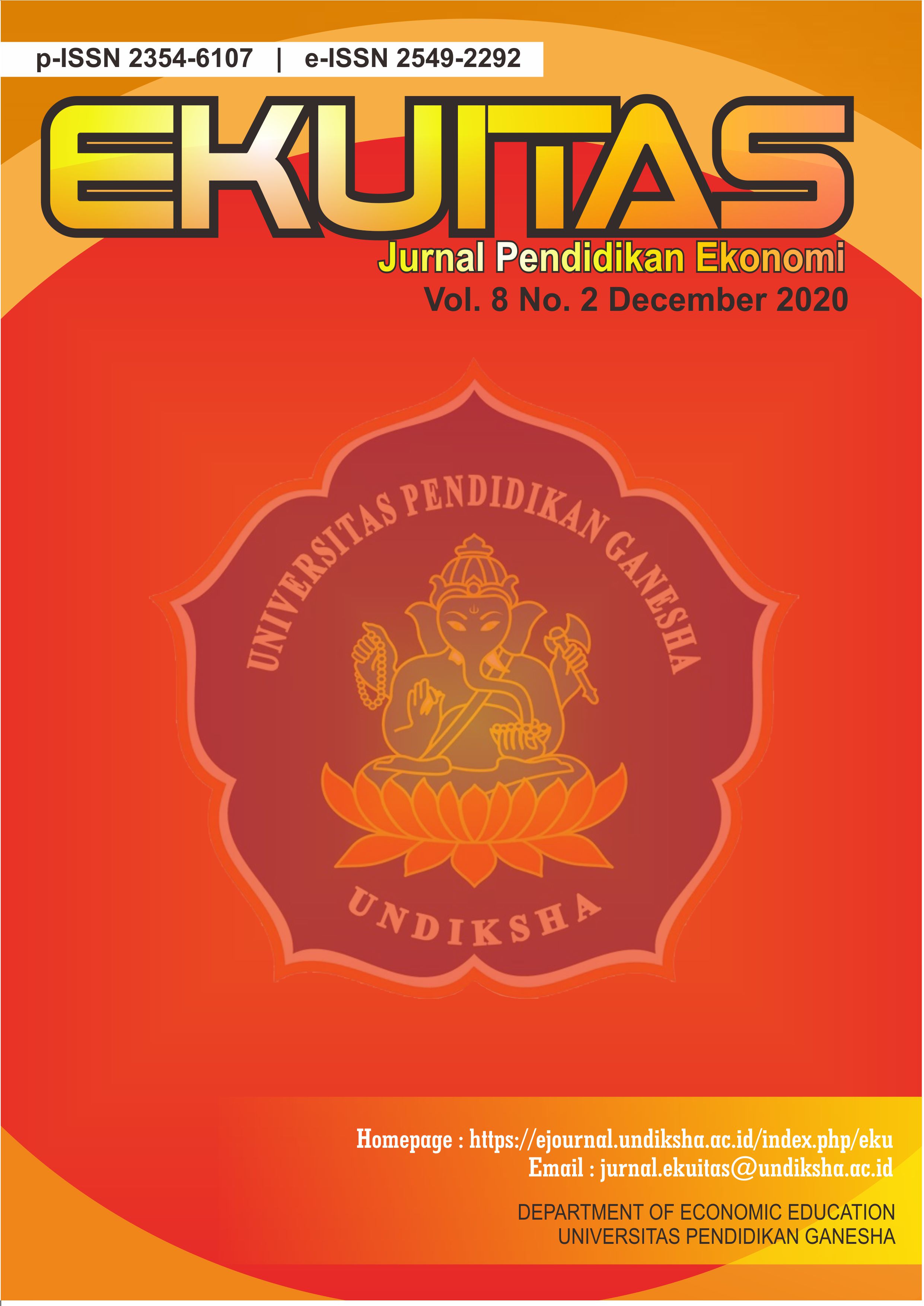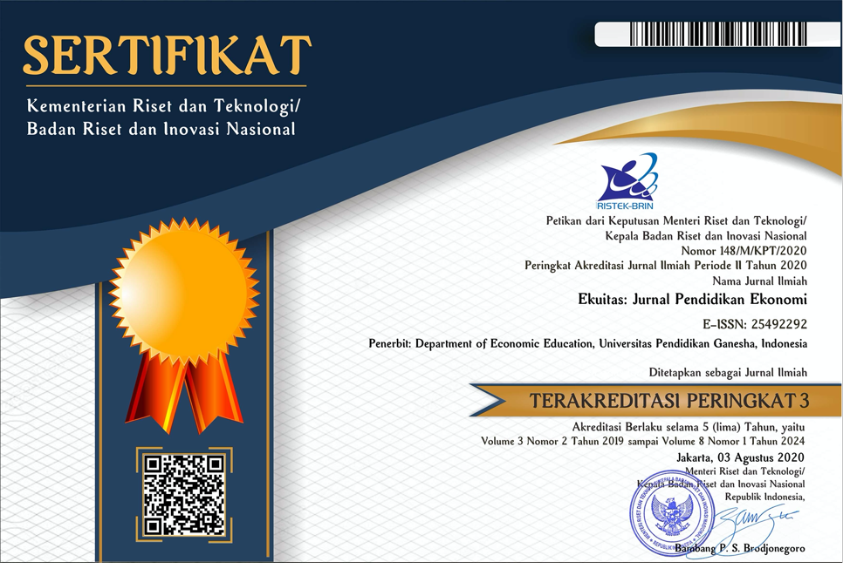Strategi Pembelajaran Blended Learning terhadap Motivasi, Hasil, dan Mutu Belajar Mahasiswa
DOI:
https://doi.org/10.23887/ekuitas.v8i2.28435Keywords:
blended learning, learning motivation, learning outcomes, learning qualityAbstract
The purpose of this study is to analyze the implementation of Blended Learning on the Motivation, Outcomes, and Learning Quality of students in the Department of Economics, Universitas Negeri Medan, academic year 2019/2020. The students’ Learning Outcomes studied are Entrepreneurship. The method used in this study is descriptive quantitative. The population in this study was Department of Economics students class of 2017 totaling 295 people consisting of 3 study programs : Economic Education, Business Education, and Office Administration Education. The sample used was 236 people by adopting a purposive sampling technique. The results show that the Implementation of Blended Learning are in Good category. Motivation and Student Learning Quality are also in Good category. On the Learning Outcomes variable, students generally get mastery grades in Entrepreneurship courses. The results also show the Implementation of Blended Learning strategies has a positive and significant effect on Motivation, Learning Outcomes, and Learning Quality. The better the implementation of Blended Learning, both in design and facilities, then the Motivation, Outcomes, and Learning Quality of students will also increase.
References
Bibi, S., & Jati, H. (2015). Efektivitas model blended learning terhadap motivasi dan tingkat pemahaman mahasiswa mata kuliah algoritma dan pemrograman. Jurnal Pendidikan Vokasi, 5(1), 74–87.
Hima, L. R. (2017). Pengaruh Pembelajaran Bauran (Blended Learning) Terhadap Motivasi Siswa Pada Materi Relasi Dan Fungsi. JIPMat, 2(1). https://doi.org/10.26877/jipmat.v2i1.1479
Karwati, E. (2014). Pengaruh Pembelajaran Elektronik (E-Learning) terhadap Mutu Belajar Mahasiswa. Jurnal Penelitian Komunikasi, 17(1), 41–54. https://doi.org/10.20422/jpk.v17i1.5
Ningsih, Y. L., & Jayanti, J. (2016). Hasil Belajar Mahasiswa Melalui Penerapan Model Blended Learning Pada Mata Kuliah Persamaan Diferensial. Jurnal Pendidikan Matematika RAFA, 2(1), 1–11.
Rizkiyah, A. (2015). Penerapan Blended Learning untuk Meningkatkan Hasil Belajar Siswa pada Mata Pelajaran Ilmu Bangunan di Kelas X TGB SMK Negeri 7 Surabaya. Jurnal Kajian Pendidikan Teknik Bangunan, 1(1), 40–49.
Sjukur, S. B. (2012). Pengaruh Blended Learning Terhadap Motivasi Belajar dan Hasil Belajar Siswa di Tingkat SMK. Jurnal Pendidikan Vokasi, 2(3).
Sudarman. (2014). Pengaruh Strategi Pembelajaran Blended Learning Terhadap Perolehan Belajar Konsep Dan Prosedur. Jurnal Pendidikan Dan Pembelajaran, 21(3), 11.








